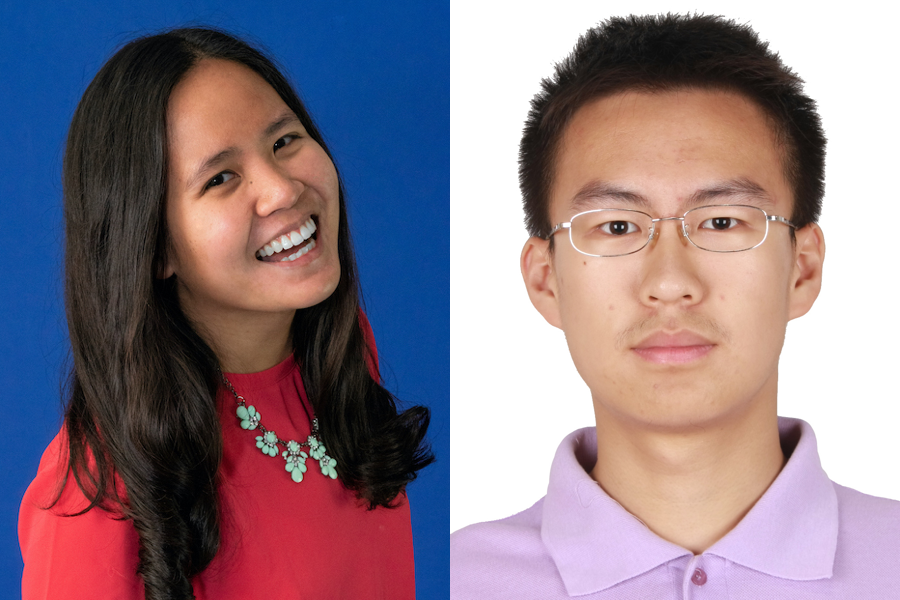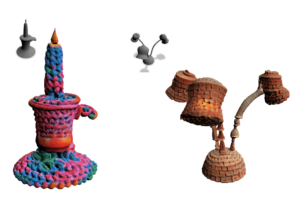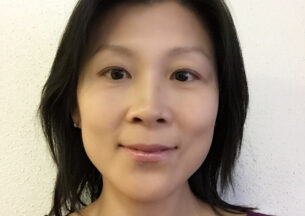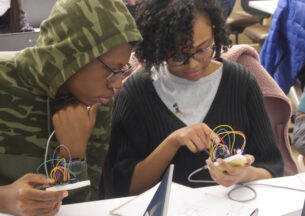Two UChicago CS PhD Students Receive 2021 Harper Fellowship

Two PhD students in the Department of Computer Science, Jean Salac and Zihan Tan, received the William Rainey Harper Dissertation Fellowship — the highest honor awarded to UChicago graduate students. The fellowships are given each year to recognize significant achievement and provide support for the final year of graduate studies to help students concentrate on completion of their doctoral degree.
Since 2018, seven UChicago CS PhD students have received the Harper Fellowship. Salac and Tan join that illustrious list with exemplary research accomplishments in computer science education and graph theory and active roles in the department and on campus. Read more about their work below.
Narrowing Gaps in Computer Science Education
Many researchers have searched for the most effective ways to introduce computer science to students as young as kindergartners. But only recently has the field examined whether these techniques are well suited for students of all backgrounds, a crucial step forward in reducing the considerable gender and racial gaps that remain in technology and other computing fields.
With her advisor, Associate Professor Diana Franklin, Jean Salac has developed and researched strategies such as TIPP&SEE that combine introductory programming languages and reading comprehension approaches to build computational literacy in students as young as 9. Their studies found that TIPP&SEE produced better student performance and project completion, while also narrowing achievement gaps. The work received a Best Paper award at the 2020 International Computing Education Research (ICER) conference, the most prestigious ACM conference on computer science education research.
Currently, Salac is exploring how diagrams in course materials can support elementary computing education and student learning. Like most of her work with Franklin’s CANON Lab, it draws equally from principles in CS, education, design, and psychology, reflecting her broadening views on research.
“I have always been interested in using my research to support people of historically marginalized backgrounds in computing, but my understanding of and my approaches to the problems have evolved,” Salac said. “When I first started, I was naively enamored by new technology and technosolutionistic in my approach. In my PhD, I have learned to think more critically about the research problems that interest me and reflect on my approaches more deeply. My work, by its very nature, has to account for the complexity of humanity from the individual to the societal level. I've become more of an interdisciplinary researcher throughout my PhD.”
Beyond her research, Salac has also been a very active member of the UChicago CS and Physical Sciences Division communities, earning the Graduate Student Leadership Recognition Award, leading the Graduate Women in Computer Science (GWiCS) organization, and working with the Transcending Boundaries Research Symposium, and the Graduate Recruitment Initiative Team (GRIT). For incoming PhD students, Salac recommends expanding your community beyond the boundaries of your research group.
“Cultivate your support system, both in and out of research,” Salac said. “PhD students spend a lot of time on their research; it's tempting to let it consume your headspace and let it slip into conversations outside of work. If you have a community where you cannot talk about your research easily, you're less likely to fall into that trap and have an easier time enforcing work-life balance.”
From Bridge to Graph Algorithms
Before joining the University of Chicago, Zihan Tan competed internationally in the card game bridge, captaining the China team in the U21 world championships. That experience prepared him well for his graduate studies in theoretical computer science, he said, because bridge is a game that requires both calculation and partnership.
“On one side, it's a game of math and logic, and on the other side, it’s a game of communication and collaboration. It's not a game you play by yourself, you need to play with your partner,” Tan said. “I think bridge improved my critical thinking and the ability to work collaboratively with others.”
After graduating from Yao Class, an elite CS program at Tsinghua University founded by Turing Award winner Andrew Chi-Chih Yao, Tan chose UChicago CS because of its history as a leading department for theoretical computer science and its close ties with the Toyota Technological Institute of Chicago (TTIC) — forming a “double-sized” department, as he described it. With his advisor, Professor Julia Chuzhoy of TTIC, he started working on graph algorithms that solve problems for systems that can be described as nodes connected by edges, such as transportation or social networks.
One typical problem Tan worked on was the “crossing number problem,” which seeks to draw a given graph in the plane with the minimal number of places where edges cross over for a given number of nodes. With Chuzhoy and Sepideh Mahabadi, Tan published an algorithm at FOCS 2020 that improved the best previous approximation of the optimal solution.
In his time at UChicago CS, Tan also received the Siebel scholarship, selected from elite graduate programs in computer science, business, bioengineering, and energy science. For incoming students, he recommended following the topic they’re passionate about, even if the practical utility is not immediately apparent.
“Try to find your interest, and after that, if you find what you really like, just stick to it,” Tan said. “Maybe it's hard to persuade others that what you're working on is useful and that there's beauty in it. But you do not have to. Just believe in yourself and never doubt that once you have convinced yourself.”













